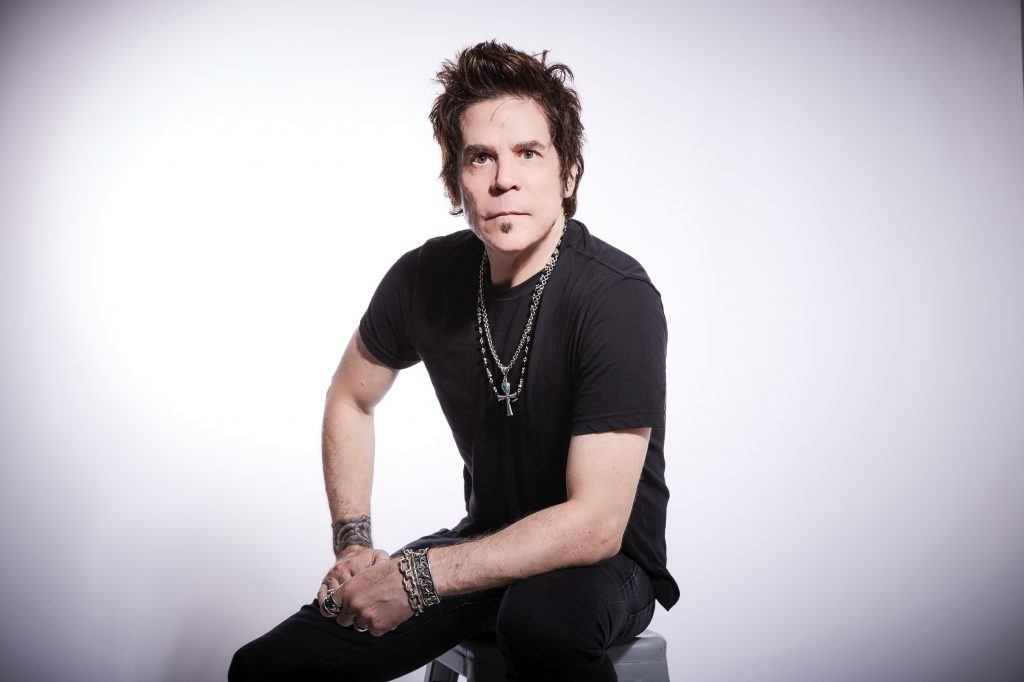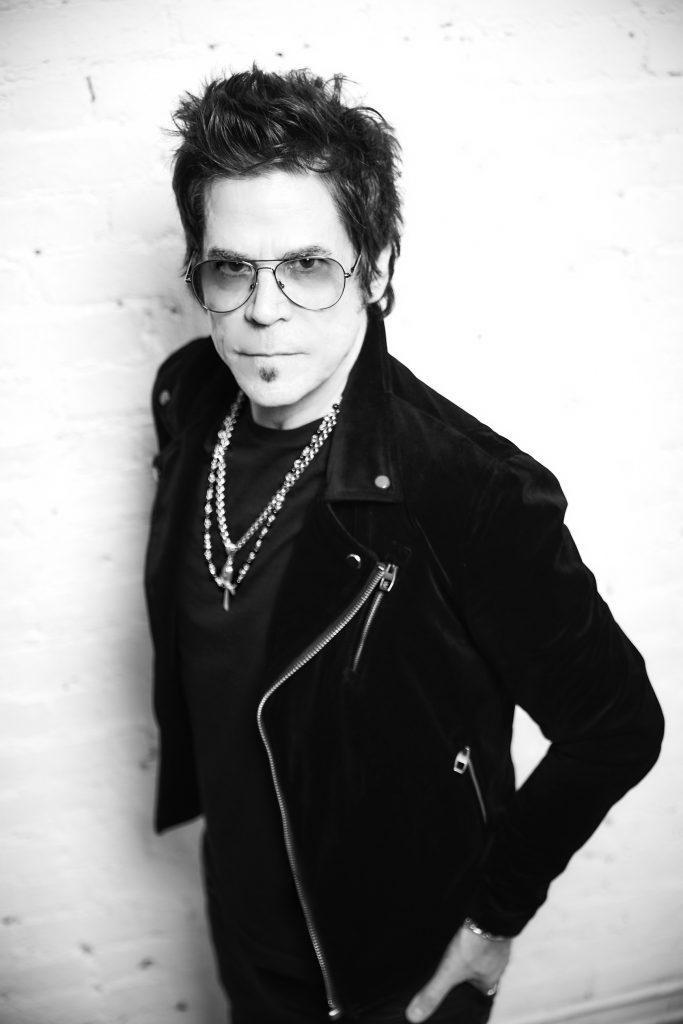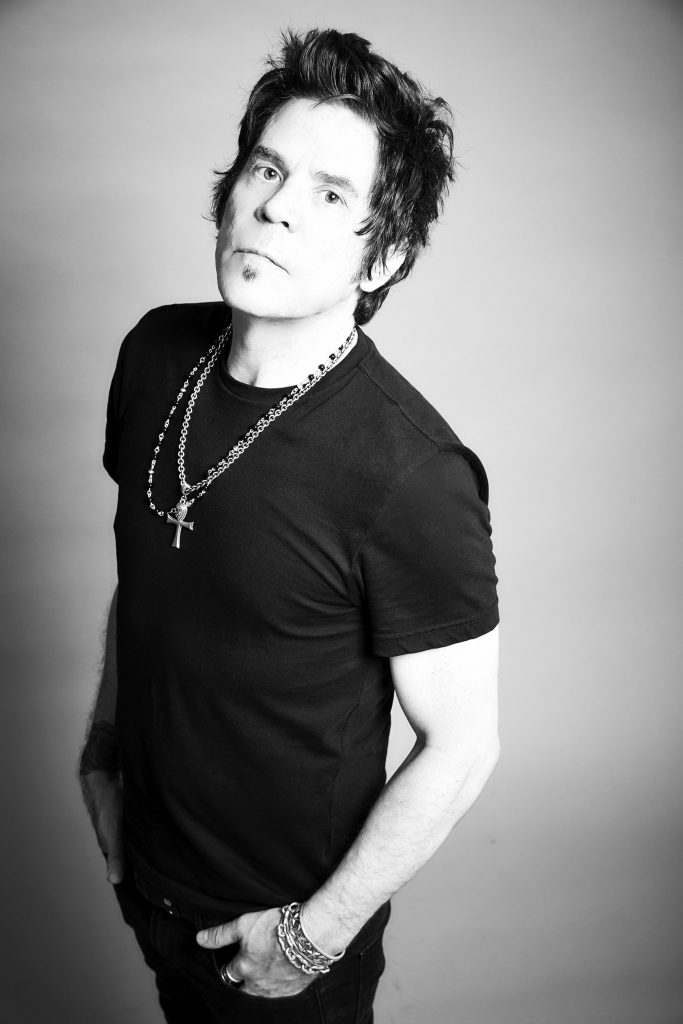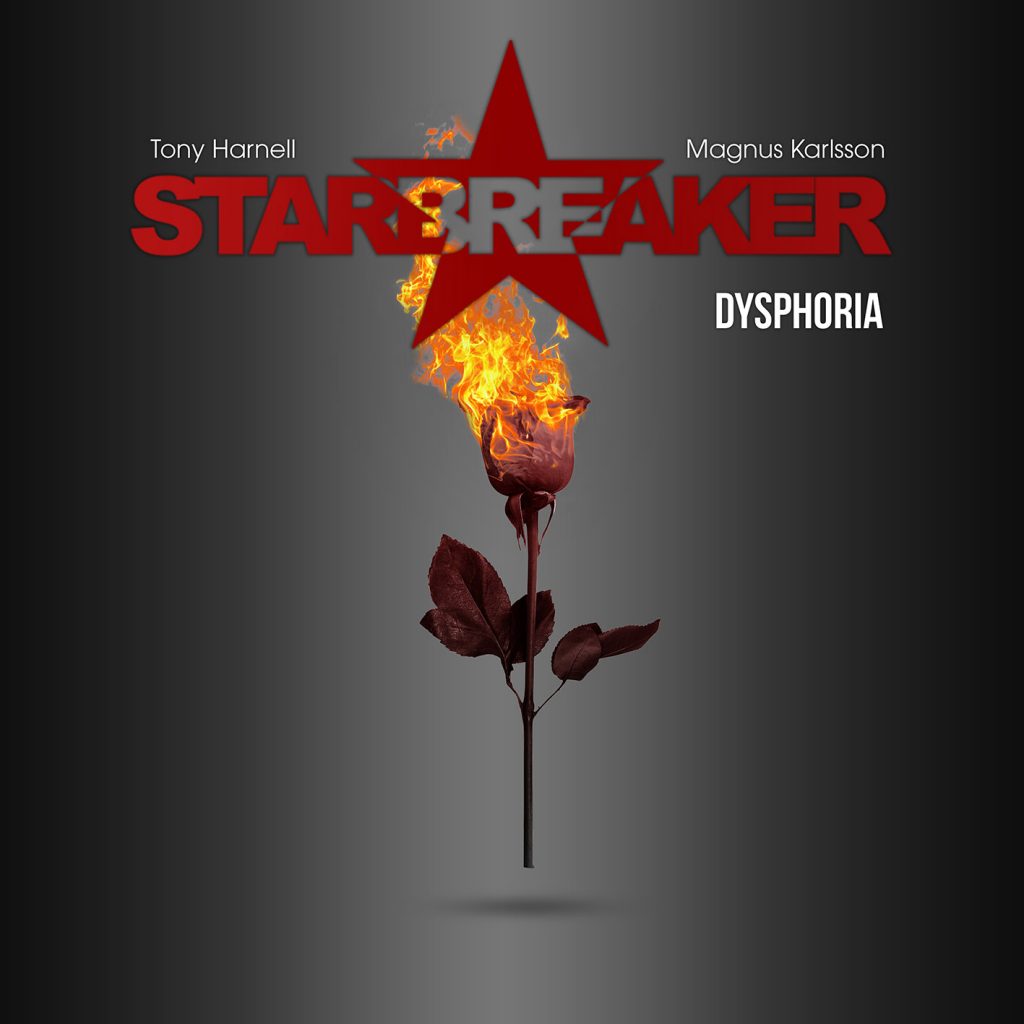interview by Michael McCarthy
photos by Photo by Bart Stadnicki
Starbreaker started off when heavy metal singer-songwriter Tony Harnell was going to do a solo album while on break from the legendary band TNT circa 2005. Instead, he wound up forming Starbreaker with guitarist extraordinaire Magnus Karlsson from Sweden, who is perhaps best known for being in the band Primal Fear. The band released their excellent self-titled debut in 2005 and followed it up with 2008’s even better Love’s Dying Wish. And then there was nothing. Tony resumed work with TNT and Magnus with Primal Fear and an entire decade passed. It was only after Tony left TNT in 2017 that the two decided to make a new Starbreaker album. It’s called Dysphoria and it consists of 10 fantastic songs that all strike a home run, knocking it right out of the park. The pairing of Magnus’ virtuoso guitar licks and Tony’s vocal melodies and lyrics have never sounded better. Dysphoria is not only the best Starbreaker album to date,
MM: I believe when I interviewed you about The Wildflowers you were living in New York City, but I understand you’re now living in Nashville. What prompted the change?
TH: Well, it had been on my mind for a while. And I just wanted to experience something new. I’d been in New York for a long time. It just seemed like a cool thing to do, so I’m trying it, you know? I’ve only been here for a couple of months so we’ll see. It’s a great place, though. I love it.
MM: Is it more laid-back than New York?
TH: Well, of course. [Laughs] Everywhere is more laid-back than New York.
MM: Are you going to do any writing for country artists or anything like that while you’re out there?
TH: I don’t know. There’s a lot more going on here than country, I can tell you that. A lot of my peers live here now. So, it’s pretty cool.
MM: The last Starbreaker album was a decade ago. Had you and Magnus stayed in touch throughout the years or did you only get reconnected more recently?
TH: We did and I actually sang a song on his solo record several years back. Yeah, we’ve been in touch here and there. He’s a great guy and I think it was always a possibility. It was just a matter of time, I think.
MM: At what point did you decide to make the new record?
TH: I think we started talking about it around 2016 or something. And then I ended up starting to work on the TNT album so we put it aside and when that ended I came right back to it.
MM: Did you guys get together to write the new album or was it more of an internet collaboration?
TH: Well, I don’t like to call it that. It was long distance. We didn’t get a chance to sit down in the same room together, but we still find a way of working as closely as we can. He does send me pretty amazing music to work with. He makes my life very easy. But at the same time, I put a lot into it and we go back and forth quite a bit. And we did do some writing over Skype and so forth. But, no, physically we didn’t sit in a room together, but I think the record sounds like we might have.

MM: Oh, yeah, definitely. Did the writing process for Dysphoria differ from when you wrote the previous two albums or were those done long distance as well?
TH: The first album was similar, but we had a producer in L.A. who was getting the material before it got to me and he was doing some stuff with it. But similar, yeah, I was doing the same sort of thing, writing to the music. The second album, we were a little bit more hands on together. I actually went to Sweden and stayed with him and wrote quite a bit of material for album number two. But honestly, in looking at all of them, I think this is the best album of the three. I think it’s got more maturity and I think the production is better than the other two by far. The songs, I think are more heartfelt and honest.
MM: What were the primary sources of inspiration for the songs on Dysphoria?
TH: Life, you know? Life is always my biggest source of inspiration. I think, as a songwriter, that’s the most important thing. The more observant one can be, the more easily one can write about the things they’re experiencing. So, yeah, I think a lot of stuff had happened in my life leading up to the writing of this record and I just sort of let it come out of me. I didn’t think about it so much ahead of time. Unless you have a movie-like script in your head, I like to let the emotions of the day pour out of me in the songs. Unless you’re sitting down purposely to write some sort of themed story like a progressive album like Rush or something like that.
MM: On “Pure Evil” it sounds like
you’re trying to escape the evil as you sing that you’re “chasing
light.” What evil are you referring to in the song?
TH:
Chasing what?
MM: On “Pure Evil.”
TH: You said chasing light?
MM: Yeah. You sing that you’re “chasing light.”
TH: Oh, no, those aren’t the words. The words are “chasing love.”
MM: Ah, I’m sorry.
TH: No, no. The last line is “we’re chasing love for pain.” Actually, [Laughs] it’s not even chasing. Now you’re confusing me. [Both laugh] I’ve gotta look at the lyrics. Let me see here. “We’re chasing love for pain.” Basically, the idea is that all of us are addicted to something. The song is about addictions and addictions are generally something that give us some kind of high. It could be alcohol, drugs, love, sex, your cell phone, social media – it could be anything. And, generally, there are obviously healthier addictions like working out, for example. But that can be pushed too far, too. People can get hurt or they can do damage to themselves in other ways. It’s basically combining a lot of ideas here. It’s addicted [where] you’re basically you’re not in yourself anymore. You’re letting something else take over you. Your reactions and your instincts and you’re sort of not in control. And that’s what the song is about. The evil of being addicted to something that’s not good for you. [Laughs] That’s basically the easy way to put it. I like to let people definite – somewhat – the lyrics for themselves.

MM: Are there any social issues that you tackled on the album like the state of our country or anything?
TH: On this record, I didn’t get too into that. On the first album I did with the song “Lies,” which could apply today as well. And “Pure Evil” could. A lot of these songs could be transferred over to some of that. I’m just looking here through these lyrics and I would say probably “Fire Away” could be a little bit of that. Not necessarily the state of things the way I think you mean it, but I think, no, not really. I mean, I think this is more of an introspective album. Let’s put it that way.
MM: I like the way “Wild Butterflies” tells a story. Is it simply a story you came up with or is it autobiographical?
TH: Everything is a little autobiographical or a lot autobiographical. It just depends on the song. And most of my words are drawn from my own experiences. It may not be exact because you’re trying to be poetic and you’re trying to make the lyrics not only paint a picture of what you’re trying to say but also sound good. But, yeah, it does tell [a story]. Not everybody’s gonna understand the story exactly because there’s a lot of metaphors being used there, but, yeah, I love that song. That’s gonna be the next single that comes out with the album.
MM: Sweet, sweet. So, is it harder or easier to write songs that are more introspective?
TH: Well, I think it’s easier because you’re writing about very direct experiences that you’ve had. I think it’s probably harder to tell a story that’s about something that didn’t happen to you.
MM: In “Last December” you sing that there’s no turning back. What happened during this “Last December” or are we supposed to figure that out for ourselves?
TH: [Laughs] Well, I suppose if I wanted to get into that I would, but, yeah, it was just, you know, some personal stuff that happened. I thought it was a cool title as well. it just kind of sounded good. So, it worked in various ways. It could’ve been November, but it sounded better to say December. And quite a bit of the album was written over the winter between 2017 into 2018. So, it just kind of worked because it was very fresh.
MM: I know you to be a very positive person from your Facebook posts, so I was a little surprised that the album was called Dysphoria. Whose idea was the title and why did you think it was a perfect fit?
TH: I wouldn’t say it’s negative at all. All it is is describing an emotional state. And I think that when you referred to the country, I would say that you could argue that the country is in that state right now. I suppose anger would be a better way to describe the state of the country at this moment, but I think a lot of people are also in a state of dysphoria. First of all, the song came out really great that’s called “Dysphoria” and I thought that it was an intriguing title. And I think the album as a whole has a theme that’s wrapped around loss and the emotions that one experiences when they’re in the midst of really big change in their life. Or when things are kind of falling apart. I think there’s a beautiful sadness about the album. And I say beautiful because that’s an important word. It’s not a record that when you’re done listening to it you feel like you want to slit your wrists or anything. I think there’s a feeling of hope always. Even in the saddest songs. So, yeah, it was an intriguing title and I thought that the album cover that our buddy Mark Leary in England came up with is beautifully done and perfectly reflected that title and the subject matter in the record. It’s mostly about love and addiction. To be simple about it.

MM: Is there going to be any Starbreaker touring or is it strictly a studio project?
TH: I hope there will be. I’m not sure if we’ll actually get out and do long tours, but I do see live shows in the future. Most likely, festivals and possibly short tours of certain countries. I can see us going almost anywhere for a few shows. Magnus just doesn’t like to leave his family for long periods of time so I don’t think that we’d be getting into any extensive tours at all.
MM: When I interviewed you about The Wildflowers, you and Bruno Ravel, who mixed the EP, were writing songs for a new Westworld album. Why did that never come to fruition?
TH: I don’t really know. Actually, that is what turned into Starbreaker. And I think we just felt that Mark Reale not being part of a Westworld record didn’t really make sense. Could it come about again later? Possibly. But the energy of a Westworld album was so dependent on he and I writing the songs together. We always sat down in a room and Mark was the only writing partner that I’ve had that was very similar to writing with Ronnie from TNT. We really connected and really took the song from a very embryonic state and developed it as a team. So, having the Westworld moniker without Mark – we realized – was not going to be as easy as we thought.
MM: I know Frontiers likes to put
together super-groups and stuff like that. Have they suggested you
and Bruno working together under a different name with a couple of
other popular guys?
TH: No, they haven’t. Not up until now
anyway. We’ll see what the future brings.
MM: I know you’re a big fan of Queen. Did you see the Bohemian Rhapsody movie?
TH: I sure did, yeah.
MM: What did you think?
TH: I thought it was brilliant. I didn’t mind any of the time-line issues or anything like that because I thought the movie was the most important thing. It’s a film, and it’s supposed to entertain, so I tried to watch it both as a movie fan and as a Queen fan. And I think it worked well on both levels. There’s no denying the songs. But I thought they did a brilliant job in every regard. I really, really loved it, yeah.
MM: Since you did the Queen Symphonic Rhapsody tour, I wondered if you reached out to them before they hooked up with Adam Lambert?
TH: I’m a little confused. I don’t think they have reached out to Adam Lambert.
MM: Adam Lambert is touring with them.
TH: With who?
MM: With Queen.
TH: Oh, that I know. You mean Queen the band? I thought you meant the Spanish tour I did. No, no, no, no. I mean, I would love the gig, but I think Adam is doing a fantastic job and he’s phenomenal. So, if they asked me I wouldn’t say no, but, you know…
MM: On another note, the Wildflowers EP was nine tracks long, which you considered a long EP, but now artists are releasing eight and nine song albums left and right like it’s the ’80s again. What do you think about that?
TH: I think it’s good because with all of the free streaming and all of the stuff that’s going on, 12 song albums just don’t really make sense anymore. I think, for example, the new Starbreaker album was 10 songs and I think they’re all good songs. I’d rather have that than 13 or 14 songs where 3 of them people kind of want to skip over. To add a number of songs on a record just to say you have that many songs versus just having a solid album, to me, makes more sense. That’s why I like that trend a lot.
Special thanks to Tony for taking the time to speak with us and to Dustin Hardman for setting it up!

Connect with Tony Harnell:

Leave a Reply